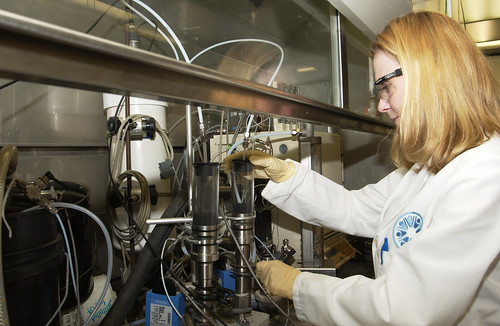No matter what area you want to work in, the science industry is extremely competitive. If you are approaching graduation, it is important that you begin the job search as early as possible in order to stand the best chance at securing a job once you leave university. In this article we will provide a guide to scientific recruitment, offering tips on how to find, apply and interview for jobs that take your interest.

Finding a scientific job role
Today many scientific jobs are advertised online so it is worth checking out job sites to see what roles are currently available. Unless you are visiting a science job site, you will need to use keywords to narrow down your search and find suitable roles in the industry. Before applying for a job always make sure that you meet the necessary criteria to avoid wasting your time and the employers.
It is also a good idea to use social media to look for scientific job roles. LinkedIn is the obvious one as it is directly related to employment, however you may also find it beneficial to connect with companies you are interested in working for on Facebook and Twitter.
Another great way to find scientific job roles is to sign up to a scientific recruitment agency such as Kinetica Recruitment. They will have the skills, experience and contacts to be able to help match you to the right job and company.
The application process
In order to stand a chance at landing your dream graduate job in science, you will need to make sure your CV is the best it can be. Always make sure that it is up to date before applying for a role and that it showcases your strengths as a candidate. Make the employer aware of any relevant experience you have and ensure you tailor your CV for the role you are applying for. If you need to send the CV via email, make sure you address it to the right person (by name).
Scientific recruitment interview basics
In order to set your scientific job interview off to a good start, you need to make sure you know a lot about the company you are applying to work for. A great way to learn about a company is to visit their website. This will help you get a better idea of the work they do and the values they hold. You can use this information to help you answer questions such as why you want to work for the company and why that particular role interests you.
Technical interviews
Many scientific recruiters conduct technical interviews. Graduates often fear technical interviews as the process can seem daunting, however it is important to go in feeling calm and confident.
Unfortunately when it comes to tackling technical interviews, there isn’t a one size fits all approach. The interviews will differ depending on the scientific subject you studied at university and the job you are applying for. The best thing to do is make sure that you are confident with talking about projects you have worked on and that you have conducted thorough reading around the subject area.
The recruiter will usually want to know what projects you have worked on and what modules you studied during your degree. Make sure you tell them what your project was about, what the key processes were, how you conducted the project and what the outcome was. If the job you are applying for requires practical skills and knowledge, it is important to make sure you can talk confidently about relevant experimental processes.

Hypothetical interview questions
Something which many scientific recruiters like to do is ask hypothetical interview questions in order to find out what you know about the topics relating to the job you are applying for. They may also go on to ask you your opinion on larger issues affecting the field of science.
Before you start panicking, it is important to remember that they are not always looking for the right answer. Much of the time recruiters will simply be evaluating how you approach problem solving and your ability to communicate your ideas. Be sure to apply concepts and theories you have learnt at university to the information they give you in order to provide a logical answer.
Conclusion
Although the fact you have a science degree makes you a very intelligent individual, it is important to remember that the interviewers will not expect you to know everything. They understand that there has to be room for you to learn and improve on the job. When interviewing you, they are simply looking for potential and the ability to learn. Providing you brush up on the basics and show an understanding of the fundamentals of the area of science you intend on working in, you should be on your way to securing your dream graduate job in science.



